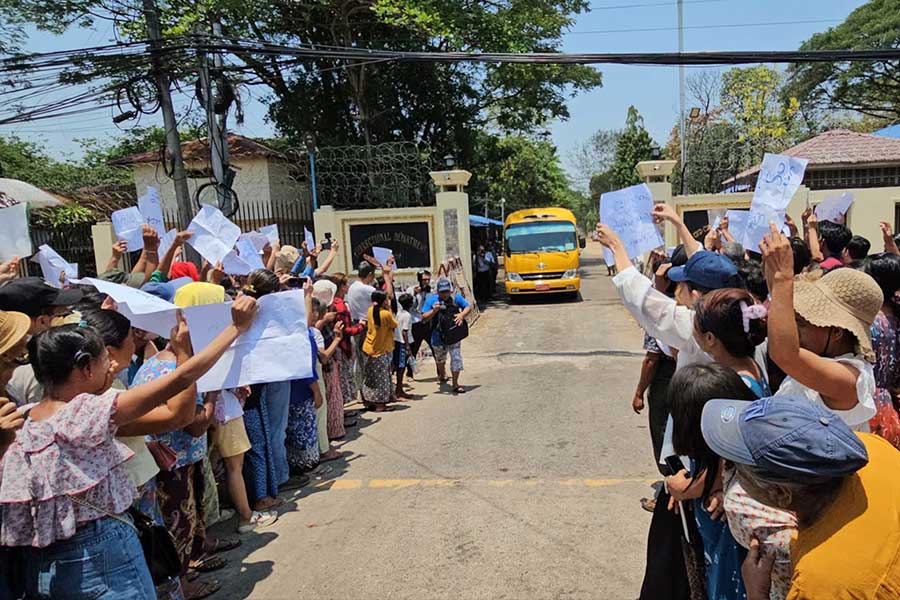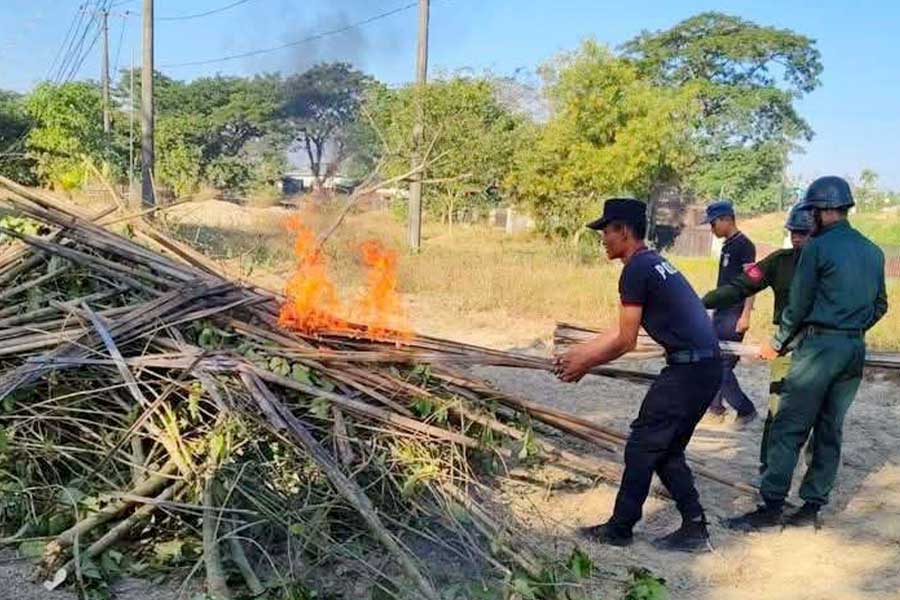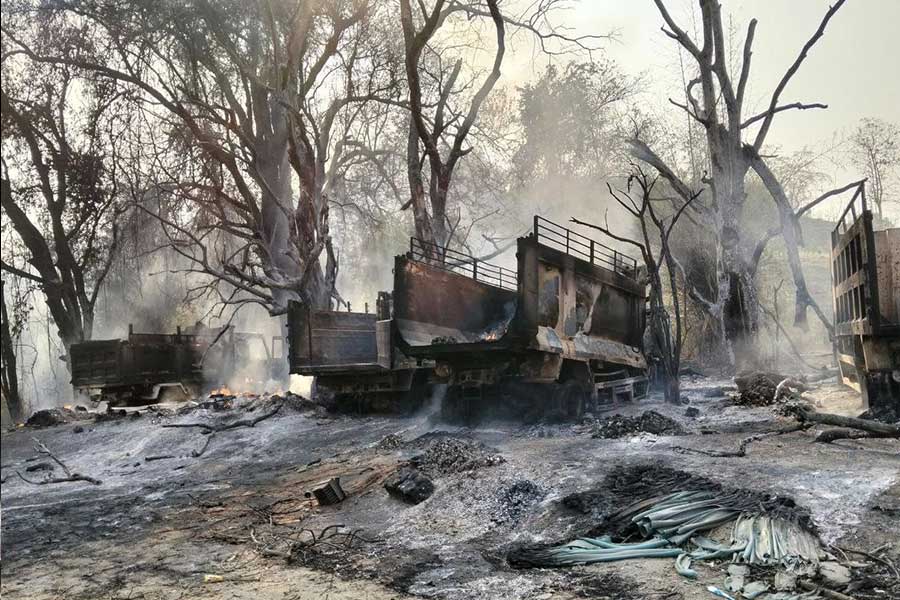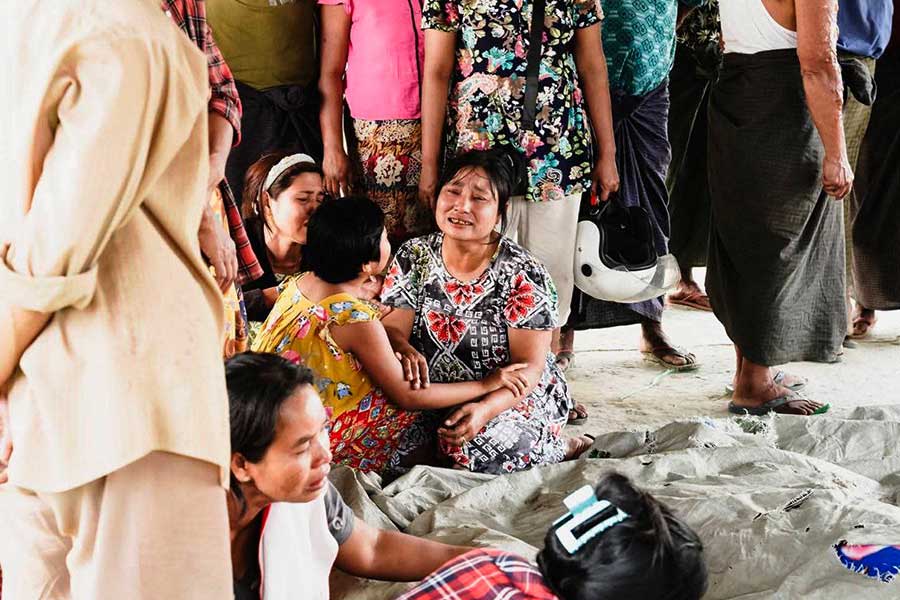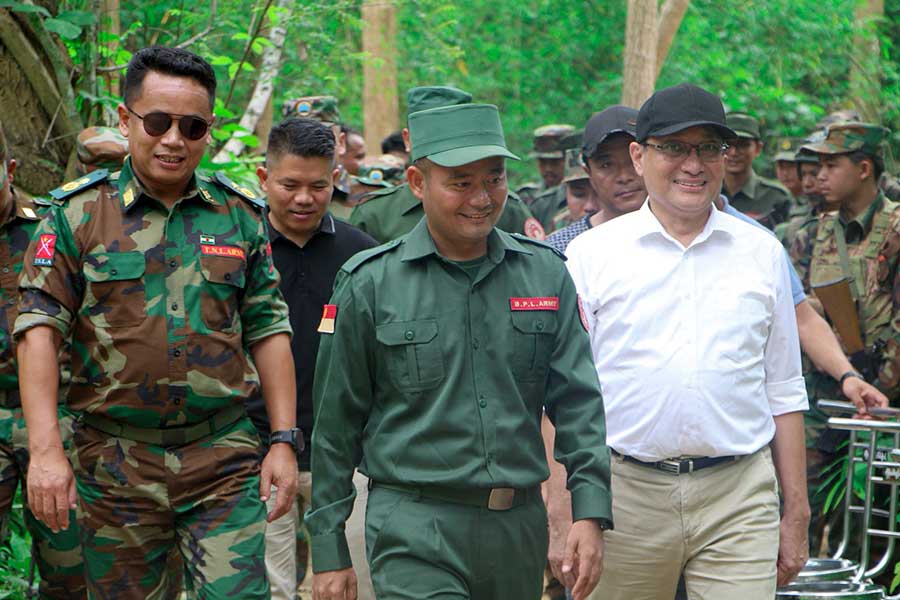- Weekly Highlights from Arakan (Feb 23 to March 1, 2026)
- Over 300 political prisoners freed from 10 prisons nationwide
- DMG Editorial: Between War and Opportunity - A New Border Reality for Bangladesh and Arakan
- Arakan Army sets five-year prison term for kratom cultivation in controlled areas
- Junta airstrikes kill over 25, including Arakanese merchants, in Mindon Twsp
Transport fares remain high in Arakan despite drop in fuel prices
The price of 92 Ron Octane has recently declined to 12,000 kyats, but vehicle fares have not fallen commensurately.
11 Nov 2024
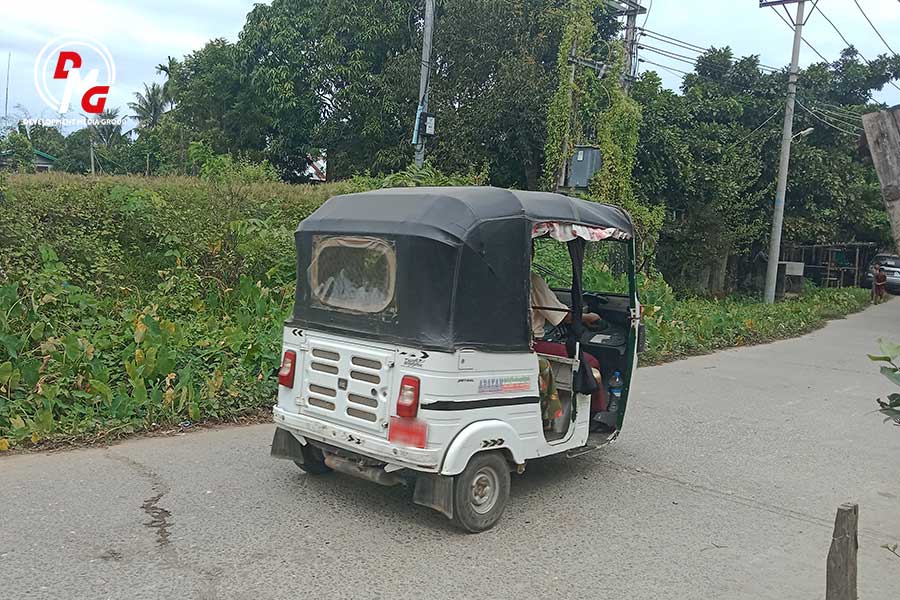
DMG Newsroom
11 November 2024, Mrauk-U
Transportation fares remain high in Arakan State despite the fact that fuel prices are gradually declining.
Residents in Ponnagyun, Kyauktaw, Mrauk-U and Minbya townships have complained about high costs as the fares of all transportation options, including the widely popular three-wheelers known locally as tuk-tuks, have surged since the latest fighting between Myanmar’s military regime and the Arakkha Army (AA) began in November of last year.
A hawker from Pyaing Chaung Village in Kyauktaw Township said: “I come from the countryside to sell things in Kyauktaw Town. The fares are high. I barely can afford the return fare on days that I don’t sell well.”
Meanwhile, other hawkers choose to walk to Kyauktaw. Most residents travel on foot in the town as they cannot afford to pay motorbike taxi fares.
Junta travel restrictions have resulted in fuel shortages in Arakan State, with fuel prices rising to 20,000 kyats per litre for 92 Ron Octane. The tuk-tuk fare for travel between Ponnagyun and Kyauktaw, and between Kyauktaw and Mrauk-U, climbed to upwards of 35,000 kyats per head.
The price of 92 Ron Octane has recently declined to 12,000 kyats, but vehicle fares have not fallen commensurately.
“Though the prices of fuel have fallen, vehicle fares haven’t. They are still 30,000 kyats from Mrauk-U to Kyauktaw. But even then, the vehicles do not operate unless there are at least four travellers,” said a Mrauk-U woman.
Previously, the vehicle fare to travel between Kyauktaw and Mrauk-U was just 7,000 kyats.
One Mrauk-U-Kyauktaw tuk-tuk driver said: “We adjust the fare depending on fuel prices. Spare parts are difficult to buy if a part breaks.”
Locals in Arakan State are suffering from livelihood hardships due to rising commodity prices resulting from a junta blockade of the state, imposed after the fighting resumed between the military and AA in November 2023.




